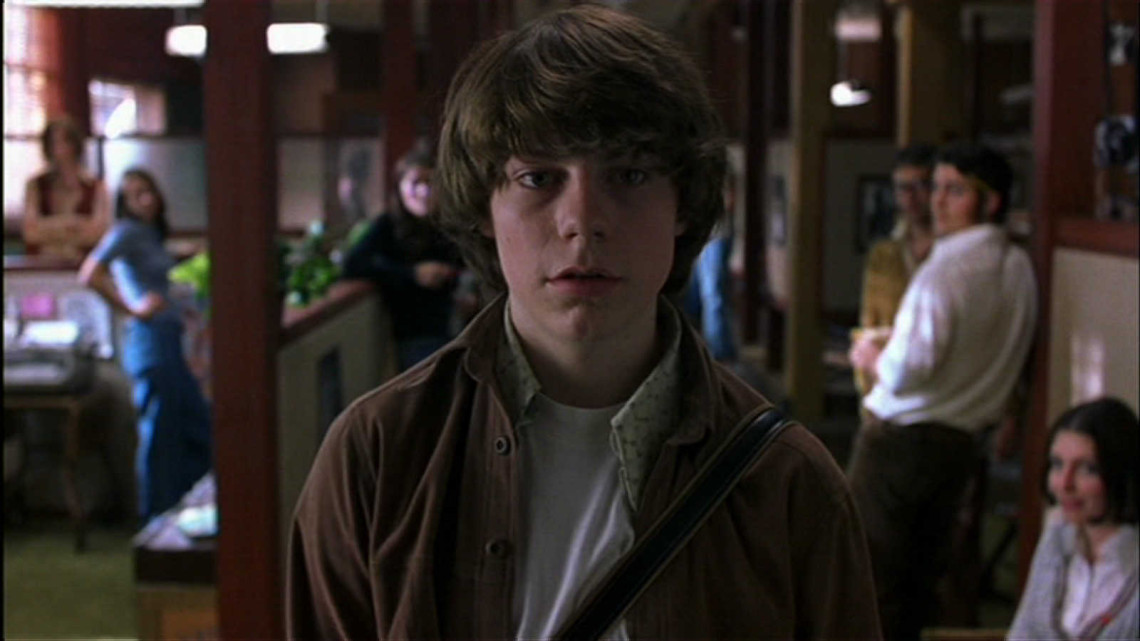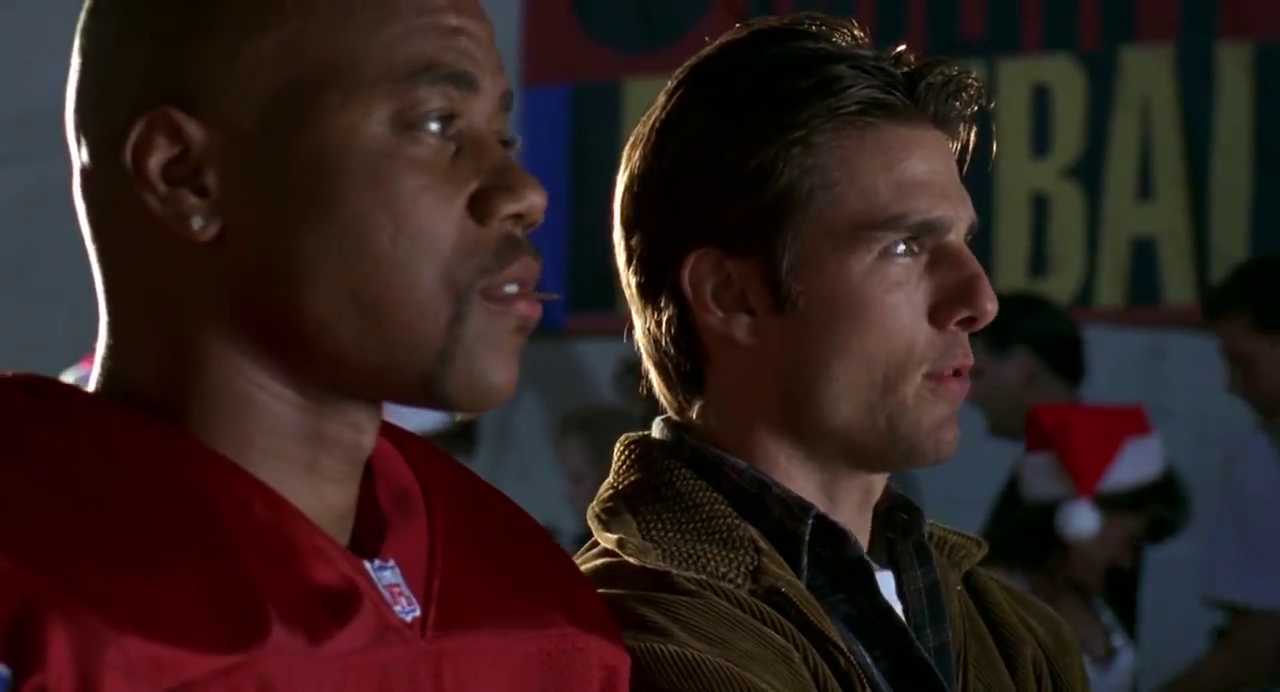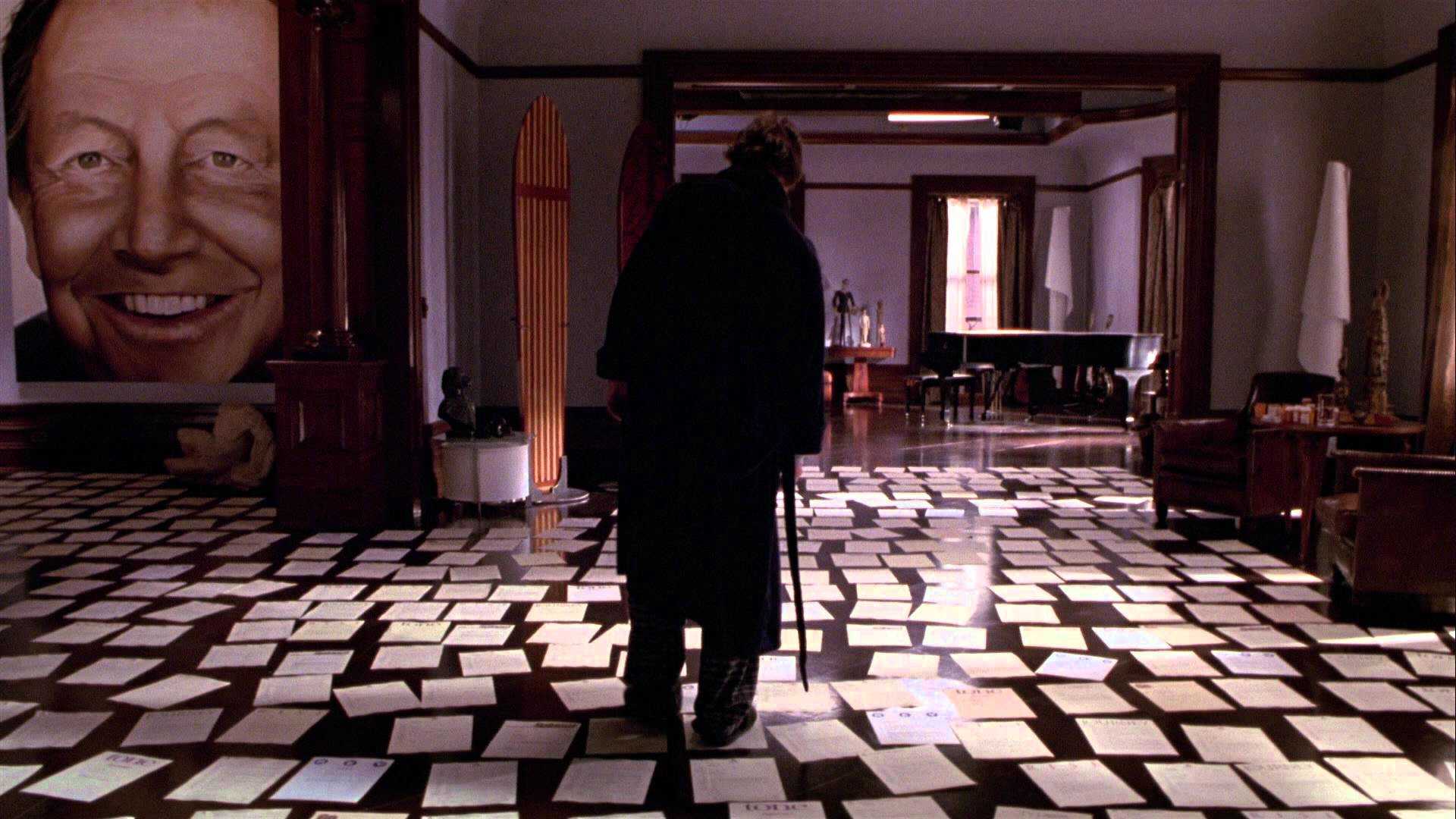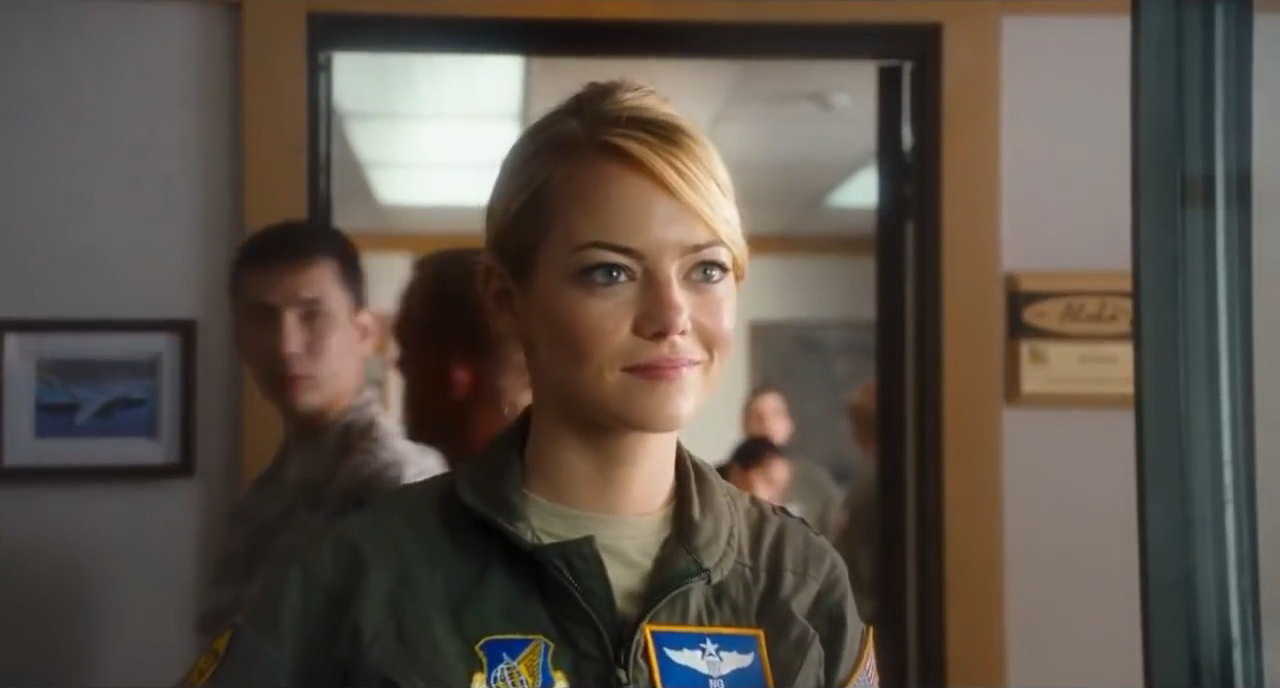Cameron Crowe is a romantic. Since 1989, he’s made eight features as writer and director, and they’re all broadly similar, featuring sensitive white men in search for identity in a world that, to them, has temporarily lost meaning. But there’s more to Crowe’s films. They are, at root, about the power of vulnerability, and about how attempts to remain emotionally distant from the world around you — to remain, for lack of a better word, cool — are antithetical to real progress and personal growth. His characters are awkward, occasionally disgraced, and frustrated by a lack of respect, but when they surrender to their softer selves, their lives begin to change for the better. Crowe makes movies about being uncool, and though that’s what makes his best works so moving, it’s also what makes them easy to write off. They intentionally invite scorn or derision. They welcome being labeled as soft-headed. They embrace the idea of being corny if it means getting to be genuine, and as a result, they’re honest and searching. Each of his movies is, in its own way, an argument for its own belief system; each one is, basically, a mission statement. As John Hughes gently chronicled the crises of Midwestern teens in the 1980s, so does Crowe acts a shepherd for his own characters and aging audience. His guiding principle: the harder you fall, the higher you can rise.
I Had Lost the Ability to Bullshit
Crowe has been open about all this since his first feature, 1989’s Say Anything…, which brought a sadness and elegance to teen love. His characters here talk sincerely and awkwardly about their deepest, most confusing feelings, but that directness almost gets overlooked because it’s still a story about high-schoolers in love, and high-schoolers in love are the kind of people prone to making extreme statements about everything; their worlds shift like mercury from day to day. If this were the only film he ever made, it’d be remembered well, but no one would blink much at dialogue like “The world is full of guys. Be a man.” Yet that yearning for nobility is exactly what would power every one of his films to follow. Sensitivity and passion are goals for Crowe’s characters and films.
As he progressed, he began to chart a life on screen in rough chronological order: the teen angst of Say Anything…, the twentysomething confusion of Singles (1992), and then, in his first major breakthrough (and still his biggest hit), the onset of adult professional existential dilemmas in Jerry Maguire. The 1996 film was a creative step up: brisk, powerful, and crackling with the energy of a storyteller unable to keep himself from expressing himself.
Crowe’s films often feel like reflections on periods of life that he’s just figured out how to process through his work—it’s easy to imagine him looking back on his youth to craft Say Anything…, and personal experience would also color his later films — and it’s impossible not to think of the director, 39 at the time of Jerry Maguire’s release, pouring himself into the story of a character only four years his junior. Jerry Maguire is about a 35-year-old professional at the top of his game who realizes he wants to be not in a different line of work, but a different kind of worker. The opening montage, narrated by Jerry (Tom Cruise), is all about the main character’s panic-inducing realization of his own emptiness and of his subsequent attempt to start to turn himself into a better person. It’s worth quoting at length given how it feels like nothing so much as Crowe announcing his own intentions:
I couldn’t escape one simple thought: I hated myself. No, no, no, here’s what it was: I hated my place in the world. I had so much to say, and no one to listen. And then it happened. It was the oddest, most unexpected thing. I began writing what they call a mission statement. Not a memo, a mission statement. You know, a suggestion for the future of our company. A night like this doesn’t come along very often. I seized it.
What started out as one page became twenty-five. Suddenly, I was my father’s son again. I was remembering the simple pleasures of this job. How I ended up here out of law school. The way a stadium sounds when one of my players performs well on the field. The way we are meant to protect them in health and in injury. With so many clients, we had forgotten what was important.
I wrote, and wrote, and wrote, and wrote. And I’m not even a writer. I was remembering even the words of the original sports agent, my mentor, the late, great Dicky Fox, who said: “The key to this business is personal relationships.” Suddenly, it was all pretty clear. The answer was fewer clients. Less money. More attention. Caring for them. Caring for ourselves, and the games, too. Just starting our lives, really.
Hey, I’ll be the first to admit it. What I was writing was somewhat touchy-feely. I didn’t care. I had lost the ability to bullshit. It was the me I’d always wanted to be.
Jerry concludes the film’s opening sequence by saying, “I was 35, and I’d finally started my life.” How can this be anything but Crowe’s own calling card? Jerry Maguire was his best and strongest film to date, a romantic drama about a wildly codependent loner who gradually, painfully, learned that the best way to be happy was to open himself up to risk and the very real likelihood of failure. Jerry, a sports agent, loses his job for his “touchy-feely” memo and struggles for months to make ends meet with just one client (played by the blissfully charismatic Cuba Gooding, Jr.), during which time he also develops a relationship with his sole employee, Dorothy (Renee Zellweger), and her young son, Ray. Interestingly for a romance, the tension is not in whether Jerry and Dorothy will get together, but how they’ll stay together: he marries her out of a twisted sense of obligation that winds up poisoning their relationship almost fatally.
It’s a warm film, though, as reflected in the style on screen. Shot by Janusz Kaminski and favoring buttery palettes, soft focus, and shallow depth of field, it often has the feel of an ad from the same era. It’s intentionally commercial, especially at first, but that slickness gives way as Jerry slips farther from his old self and into a new one. Crowe’s films aren’t necessarily visually striking, but they do share a visual friendliness, an easiness on the eye, that helps underscore the tone. The film leads, of course, to a climactic reunion scene that features one of the most memorable lines of dialogue of that decade, but it’s worth noting that the power of the scene is rooted in Jerry’s prostrating himself in front of other people in an attempt to reconcile with a woman for whom he has only too late realized his love. He is utterly weak here, asking for forgiveness and mercy. He is emptied out. This, Crowe says, is what you have to do. This is how you have to be.
I’m Always Home. I’m Uncool.
If Jerry Maguire was obliquely about Crowe’s own life, Almost Famous (2000) turned the subtext into text, directly drawing from Crowe’s experience as a fledgling rock journalist for Rolling Stone in the early 1970s, when he was in his teens. William Miller (Patrick Fugit), the young reporter and stand-in for Crowe, is an excited yet uncertain observer of the action around him, tasked with reacting instead of acting. William’s job is to try and take everything in as he wrestles with the tension between his professional desires (be a good journalist) and personal ones (befriend the members of his favorite band). The overriding lesson William learns is, in many ways, about the power and necessity of being uncool, of being an outsider, being tender. He finds a mentor in Lester Bangs (Philip Seymour Hoffman), who counsels him in a late-night phone call about the virtue of being uncool: only through being uncool, Lester says, can we reveal our true selves and have any chance at forming relationships. Interestingly, while Crowe had originally envisioned the “uncool” phone call between William and Lester as a “call to arms” and a “loud, late-night pronouncement,” it was Hoffman who brought the volume down and turned the conversation into a moment of confession. The moment became, according to Crowe, “the soul of the movie.”
Almost Famous displays a deep sympathy for its characters: the members of Stillwater, the fictional band at the center of the story, are insecure and egotistical, but ultimately well-meaning and even a little silly; William is sexually eager but never exploitive; the kids are really all right. Drugs are harmless, fans are caring, and music can change your life—this is a film where Woodstock happened but Altamont never did. It’s also a kindhearted, generous movie that unironically embraces the redemptive power of family in whatever form it can be found. One day, as the members of the band are on the edge of a breakdown, they roll out of town on their tour bus to the strains of Elton John’s “Tiny Dancer.” It’s not just on the soundtrack, but diegetic, emanating from their own tour bus speakers, and Penny Lane (Kate Hudson), leader of the Band Aids who travel with the band, starts to sing along. She’s not clowning around, and when others join in, they aren’t, either. They all, together, sing along as the bus rattles down the highway, and the moment breaks the tension between them and starts to let them heal. There is nothing at all cool or face-saving about singing “Tiny Dancer” with your friends on a bus, which is precisely the point. This is an incredibly sentimental move, and one that almost borders on fantasy, but such is the power of Crowe’s belief in the restorative nature of the community of the uncool that you believe it could happen—you believe it really did happen, somewhere, sometime.
Almost Famous makes perfect sense as the follow-up to Jerry Maguire. It’s Crowe’s best and most personal work — soulful, bittersweet, gracious — and it feels like he took the success and cachet of Jerry Maguire (which earned five Oscar nominations, including best picture and best original screenplay, and netted a best supporting actor Oscar for Gooding) and used it to finance a love song to the idea of salvation through rock music. It was the crest of a creative auteurist peak for Crowe, and remains (right next to Maguire) his most artistically, cinematically, and attitudinally satisfying film.
Think About Back When You Were a Little Kid. It Wasn’t About the Money, Was It? Was It? … Was It?
Interestingly, Crowe’s follow-up to Almost Famous was the first occasion in which he directed a film not based on his own original script: 2001’s Vanilla Sky, though adapted by Crowe, was a remake of Abre los Ojos, a 1997 film by Alejandro Amenábar. It would be a decade before Crowe directed another film from a non-original source, with 2011’s We Bought a Zoo, based on the memoir of Benjamin Mee and originally written by Aline Brosh McKenna before Crowe handled the rewrite. Those are, to date, his only films not based on original ideas. It cannot be a coincidence that they’re also his weakest films.
Vanilla Sky waters down the surrealist horror of the original into something tonally inconsistent—at once too eager to please and too afraid to find its own voice—while We Bought a Zoo stumbles with wooden dialogue and lifeless relationships. The scripts lack his usual wit and speed. Crowe is especially off the mark in Zoo, which features (in part) a teenage relationship so empty that it’s almost stunning to realize it’s authored by the same filmmaker who made the young love Say Anything… such a pop cultural force. Yet if Crowe is at his best when he’s most vulnerable, and therefore able to transmute that vulnerability into a story born of personal belief, it’s little wonder that his weakest films are those from outside his own experience. There’s a visible manipulation to both films that feels clumsy and embarrassing, as if Crowe can’t find his way into his own narrative. It would be crass and incredibly wrong-headed to reduce these films to simple paychecks—if nothing else, such sentiments act as if directing is not a job but a spiritual calling, and that films are only ever made for charity—but it’s hard to ignore the root problem: without skin in the game, Crowe doesn’t play to win.
It’s Not Too Late for You to Become a Person of Substance
This later period also saw Crowe return to his own life story with 2005’s Elizabethtown. The fantasy elements are here, including a heightened romance that springs full-blown almost too readily from the dust at its characters’ feet, but Crowe is able to sell so many aspects of the romance because he believes so strongly in the story underpinning it: that of a young man going home to bury his father. In 1989, as Say Anything… was building Crowe’s reputation, his own father died of a heart attack while visiting relatives in Kentucky. Crowe was in his early 30s at the time, and it’s no surprise the protagonist of Elizabethtown, Drew (Orlando Bloom), is the same age. Drew’s father dies on a trip to visit extended family in small-town Kentucky, and Drew travels there to oversee the arrangements and get to know relatives he’s never seen.
Crowe does not mock these Southerners, or put Drew through a series of tests that would have found welcome in a more conventional screenplay. Just the opposite: there’s a warmth and openness with which Crowe treats the extended family that helps make the ensemble scenes the strongest in the film. Yet despite the film’s weaker romance, the heart of the story is still quintessential Crowe. Drew is on the verge of financial and professional ruin when his father dies, and he spends the film hiding from his own weakness until he finally learns to accept it. The real love story is between Drew and a ghost, which is why the most affecting tears in the picture are those shed as Drew drives across the country with his father’s ashes in a jar on the passenger seat, talking for hours to a man who’s gone but still listening.
The Things We Think and Do Not Say
So where does that leave Crowe now? And where does it leave us? His next film, Aloha, is his first original screenplay in ten years, though as of this writing, the filmmaker and distributor have been reticent to discuss it. Is he still who he used to be? Are we?
Maybe. Crowe hasn’t changed that much throughout his career, which is to say he’s never drastically changed his style or sentiments. Even when the execution fails to measure up to the ideas involved, his films are still honest, gentle stories about the worthiness of being the uncool, vulnerable his films are still honest, gentle stories about the worthiness of being the uncool, vulnerable outsider.
But we have changed, just a little. One of the dominant modes of cultural engagement is now “ironic consumption”—the decision to experience media at an emotional remove from one’s self, collapsing the gap between (e.g.) watching a movie and commenting on the fact that you’re watching a movie. Cultural artifacts are now met with self-defensive guardedness, as if to declare an honest love (or distaste) for something free of broader cultural binders is too great a risk to take. By anonymizing our relationships online—and, in tandem, by presenting to so many others nothing more than a construct made specifically for the digital medium—we’re able to excise emotion from living.
Writing for The New York Times in 2012, Christy Wampole cuts to the heart of the irony problem:
How did this happen? It stems in part from the belief that this generation has little to offer in terms of culture, that everything has already been done, or that serious commitment to any belief will eventually be subsumed by an opposing belief, rendering the first laughable at best and contemptible at worst. This kind of defensive living works as a pre-emptive surrender and takes the form of reaction rather than action. …
What would it take to overcome the cultural pull of irony? Moving away from the ironic involves saying what you mean, meaning what you say and considering seriousness and forthrightness as expressive possibilities, despite the inherent risks. It means undertaking the cultivation of sincerity, humility and self-effacement, and demoting the frivolous and the kitschy on our collective scale of values. It might also consist of an honest self-inventory.
There’s a comfort to the ease with which genuine sentiment and affection can be brushed aside online in the race to insouciantly dismiss a film (or series, or book, or album) with 140 characters. To keep something at arm’s length, to prevent it from elevating or hurting us—from just making us feel anything at all—is a safe way to live, but it’s anathema to Crowe, and thus, it’s impossible to get anything from his films (or from any film) without lowering those walls and allowing for the possibility of a vulnerable viewing experience. “We live in a cynical world, and we work in a business of tough competitors,” Jerry Maguire says to his wife. Crowe makes movies designed to fight against that cynicism. To seek shelter in the presence of loved ones, to build a family out of nothing, to be ungainly and uncool and unafraid—these are the things that can save us, Crowe says, if only we would let them. He means what he says.





















5 thoughts on “Birth of the Uncool: The Mind and Movies of Cameron Crowe”
Pingback: It's Not Too Late for You to Become a Person of Substance - Daniel Carlson
Pingback: Page 2: I Saw ‘Aloha’ on Tuesday and Have Already Almost Forgotten About It | Filmdot
Cameron Crowe’s best movie: Vanilla Sky. ALso Tom Cruise’s best movie.
Pingback: Page 2: I Saw ‘Aloha’ on Tuesday and Have Already Almost Forgotten About It | OddPad.com
Pingback: My Cinematic Year in Review, 2015 - Daniel Carlson